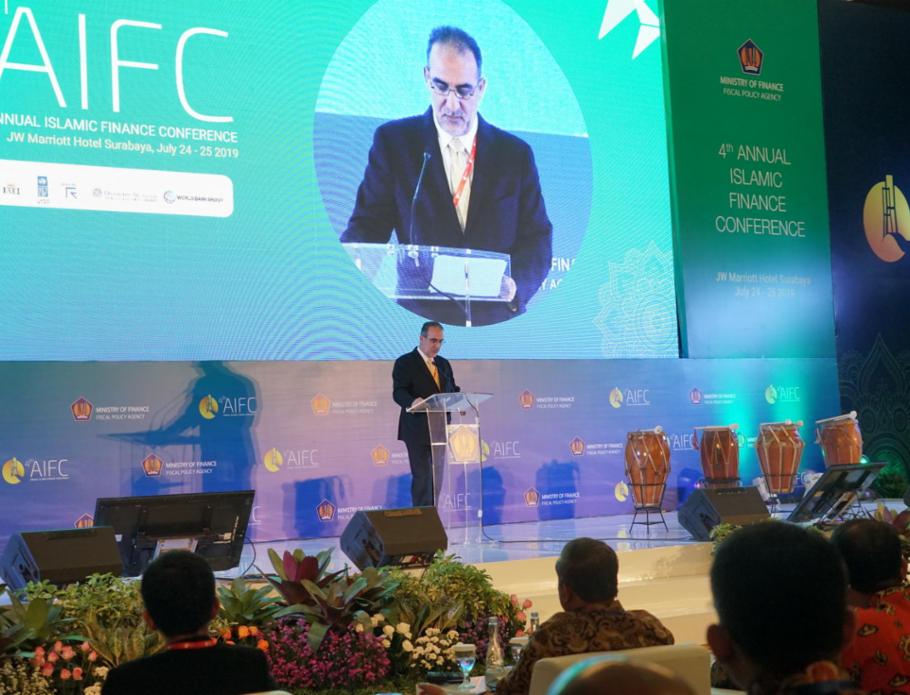SDG financing gap in Islamic countries an ‘opportunity’ for Shariah-compliant finance – IDB official
SURABAYA - Blending the potential of Islamic finance and impact investing can mobilise additional sources of finance for sustainable development at a time when the financing gap for the Sustainable Development Goals (SDGs) is widening, according to an official of the Islamic Development Bank.
“In the Bank’s 57 member countries, financing SDGs needs about $700 billion a year,” said IDB’s Walid Abdelwahab, Director-General, Country Relations and Services, in Surabaya, Indonesia, on Wednesday.
The SDGs financing gap for the world is estimated at around $2.5 trillion annually. The gap for the Organisation of Islamic Cooperation (OIC), whose members overlap with IDB's, is around $1 trillion a year, of which $700 billion covers infrastructure shortages only.
“Within this need, the financing gap is expected to widen further by 2030, with the expected increase in the population of our member countries to 2.2 billion by 2030. This is the opportunity,” added Abdelwahab.
The population of the member countries of the Saudi Arabia-based multilateral IDB is currently around 1.8 billion.
Abdelwahab said the blending of Islamic finance and impact investing can increase the social, environmental and financial impact of investments through increased coordination, and accelerate progress towards the United Nations’ 2030 Agenda for Sustainable Development that the IDB has committed to.
“They both share a set of values that drive their investment philosophy: values that override other criteria and become defining parameters, objectives, modalities and fund deployment,” said the IDB official.
The current size of the global impact investing market is estimated to be $502 billion by the Global Impact Investing Network (GIIN).
GIIN defines impact investments as those made with the intention to generate positive, measurable social and environmental impact alongside a financial return.
In Indonesia alone, local Islamic fund manager PT Mekar Investama Sampoerna estimates there are around $23 billion in impact investment opportunities in the next five years.
While there is a substantial opportunity to meet the SDGs funding and financing gap, the Islamic finance industry still needs to address key challenges, said Abdelwahab.
He said that Islamic financial product innovation must go beyond tweaking conventional contracts and should be able to provide true differentiation and real value addition to address the social and economic challenges faced by the Muslim and broader world.
He added that as Islamic finance and impact investing expand to new territories and jurisdictions, and integrate more closely with the global Islamic economy, the harmonisation of laws and regulations will become even more critical.
This is to ensure that cross-border transaction costs are low and the industry can be efficient and competitive, said Abdelwahab.
Islamic finance and impact investing require governments and regulators to think less in terms of competition and more along the lines of collaboration and cooperation, said the official.
(Reporting by Yosi Winosa; Editing by Emmy Abdul Alim emmy.alim@refinitiv.com)
© SalaamGateway.com 2019 All Rights Reserved
